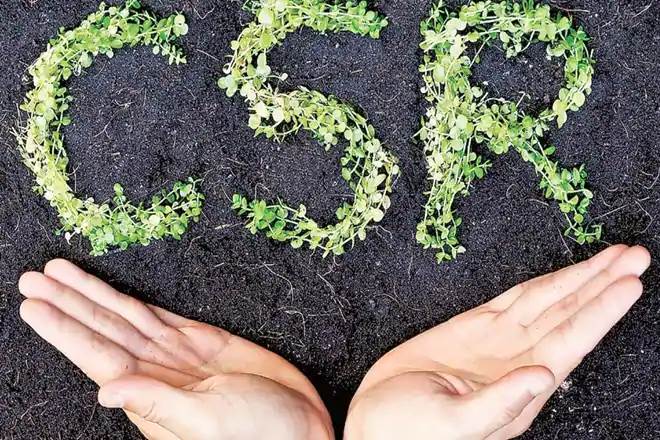Today, there is an evident environmental crisis. Governments and institutions globally are doing their best to save the planet from further damage. This is because there has been a misuse of natural resources leading to depletion. The rise in air pollution caused by many factors including single-use plastics, deforestation, global warming, overpopulation, industrial waste etc. has led to dangerous consequences, which are impacting our planet.
However, not all hope is lost. It is very heart-warming to see people becoming eco-conscious and finding proactive means to be eco-friendly in their own day-to-day lives. There is an awareness and an awakening to save the earth and with simple, easy to follow measures, we can have a positive impact on the environment. While things may take a while to have a global impact, here are a few effective and productive ways in which we can save our environment on an individual level:
Following the three Rs- Reduce, Reuse and recycle
Quite simply, if we cut down on consumption and more importantly wastage of goods and products in the home and office, this will go a long way in protecting the environment. For example, switching to cloth over disposable products such as paper napkins, cups, plates, table runners etc. will save the paper as throwaway goods add to the problem of waste and need to be replaced. Ordering products in bulk saves on packaging and requires less material to wrap. Often in our homes, we throw away appliances and broken toys and buy new ones. Instead, we can repair these and reuse them for a longer period. Opting for steel and glass containers over foil, cling wrap and plastic not only helps contribute to the environment but is also a much safer and healthier option. For grocery shopping, a cloth bag is a good option to cut down on the single-use of plastic, which takes years to decompose. Using recycled products in our homes and offices is also a good way to make a difference. Opt for products made from recyclable materials. Today every item such as pens, papers, cups, plates, letterheads and stationery are easily available in more eco-friendly materials.
Using alternative forms of energy
For transportation and electricity, we rely heavily on petroleum and coal-producing toxic by-products on consumption. The trend is now leaning more towards green energy as companies and people are opting for alternate forms such as solar, wind and geothermal energy, which is environmentally friendly and leaves no sides effects. Countries like Iceland, Sweden, Costa Rica, Uruguay, Kenya, Germany, and China are leading the way in renewable energy. At our facility in Borosil Gujarat as well, 48% of all the electricity we consume comes from wind energy, the Government of India has recognized our energy conservation efforts, and we were awarded the National Energy Conservation Award in 2006.
At our homes and offices, opting for alternate forms of energy will help the environment and reduce our electricity consumption and bills.
Use of public transport and carpooling
The number of vehicles on Indian roads has seen a rise in the last decade. With traffic jams and congestion on the roads, cars are unable to burn fuel efficiently and end up burning more fuel, contributing to air pollution. A way to combat this is to make use of public transport. Using the local train, bus or another mode of transport reduces carbon dioxide emissions and greenhouse emissions. Another benefit of using public transport is that it can carry a larger number of people at once compared to single vehicles. This helps in reducing noise pollution, traffic congestion and smog. Nowadays, young professionals are car-pooling to work and are also opting to cycle, or even walk. It is more than just being ‘cool’. People are becoming conscientious.
Save electricity
Replace traditional incandescent light bulbs with Halogen incandescent bulbs, compact fluorescent lights (CFLs), and light-emitting diode bulbs (LEDs). Though these might be more expensive than the regular light bulbs, they use anywhere between 25-80% less electricity. These bulbs are also cost-effective when viewed from a long-term perspective as they are long-lasting and the number of bulbs needed for consumption reduces drastically, thus saving money. It is also imperative to switch off lights and fans once we leave our homes. Often when we charge our phones or devices, we leave the switch on even after they have been charged. Let us make it a point to turn the switch off after our devices have been charged.
Rainwater harvesting
The water crisis across the globe has made everyone sit up and take notice. Water is soon going to become the scarcest commodity and many countries are already paying a heavy price due to water shortage. If we are mindful, we can save millions of litres a year by doing simple things. Rainwater harvesting is a good way to do so. Collecting rainwater in large reservoirs or in buckets or even kitchen utensils can be put to good use for personal requirements such as watering plants and gardens, washing our cars or even for washing dishes. At Borosil, we have been using rainwater harvesting since 2003 and our 36 golf course, which is maintained using the water from our rainwater harvesting efforts. We can also be mindful for the amount of water we are using while brushing our teeth or taking a shower.
These changes we can adopt at the micro-level, which with gaining certain momentum will have a macro impact as we all must face the need of the hour to roll up our sleeves and play our role right to save the planet.
Views of the author are personal and do not necessarily represent the website’s views.
 Priyanka Kheruka is Brand Head at Borosil Glass Works Ltd. The Wharton graduate has led Borosil through her vision and initiatives to transform beyond their pioneering capabilities in glassware to a trusted consumer products brand across the kitchen to table solutions. Kheruka truly lives by the Borosil legacy of developing safe, healthy and hygienic products.
Priyanka Kheruka is Brand Head at Borosil Glass Works Ltd. The Wharton graduate has led Borosil through her vision and initiatives to transform beyond their pioneering capabilities in glassware to a trusted consumer products brand across the kitchen to table solutions. Kheruka truly lives by the Borosil legacy of developing safe, healthy and hygienic products.
To read more articles by the author, click here.

